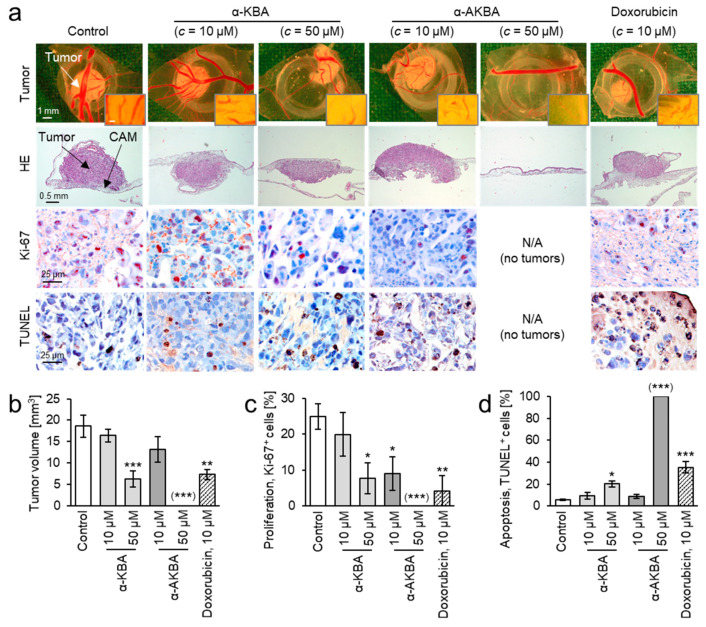Figure 8.
11-keto-α-boswellic acid (α-KBA) and acetyl-11-keto-α-boswellic acid (α-AKBA) inhibit proliferation and tumor growth and induce apoptosis in breast cancer xenografts in vivo. MDA-MB-231 cells were grafted onto the chorioallantoic membrane (CAM) of fertilized chick eggs and treated for 3 consecutive days with either α-KBA (10 and 50 µM), α-AKBA (10 and 50 µM), doxorubicin (10 µM), or DMSO (0.5%) as vehicle control. After treatment with 50 µM α-AKBA, no tumors could be observed. Hence, results for α-AKBA (50 µM) are considered as 0% proliferating cells or 100% apoptotic cells and delineated in brackets. (a) 1st row: tumor photographs immediately after extraction (original magnification 50×). Inserts: peritumoral blood vessels (bar: 100 µm). 2nd row: hematoxylin and eosin staining. 3rd row: staining for proliferation marker Ki-67 (red-brown nuclear stain, original magnification 200x). 4th row: TUNEL (terminal deoxynucleotidyl transferase dUTP nick end labeling) staining for apoptosis (brown, original magnification 200x). Representative pictures are shown. (b) α-KBA and α-AKBA concentration-dependently inhibit the tumor growth and (c) the cancer cell proliferation. (d) α-KBA and α-AKBA induce apoptosis in cancer xenografts. All data are mean ± standard error of the mean (SEM), n = 4–6. Comparison with control by one-way ANOVA and post hoc by Dunnett´s test with * p < 0.05, ** p < 0.01, and *** p < 0.001.

